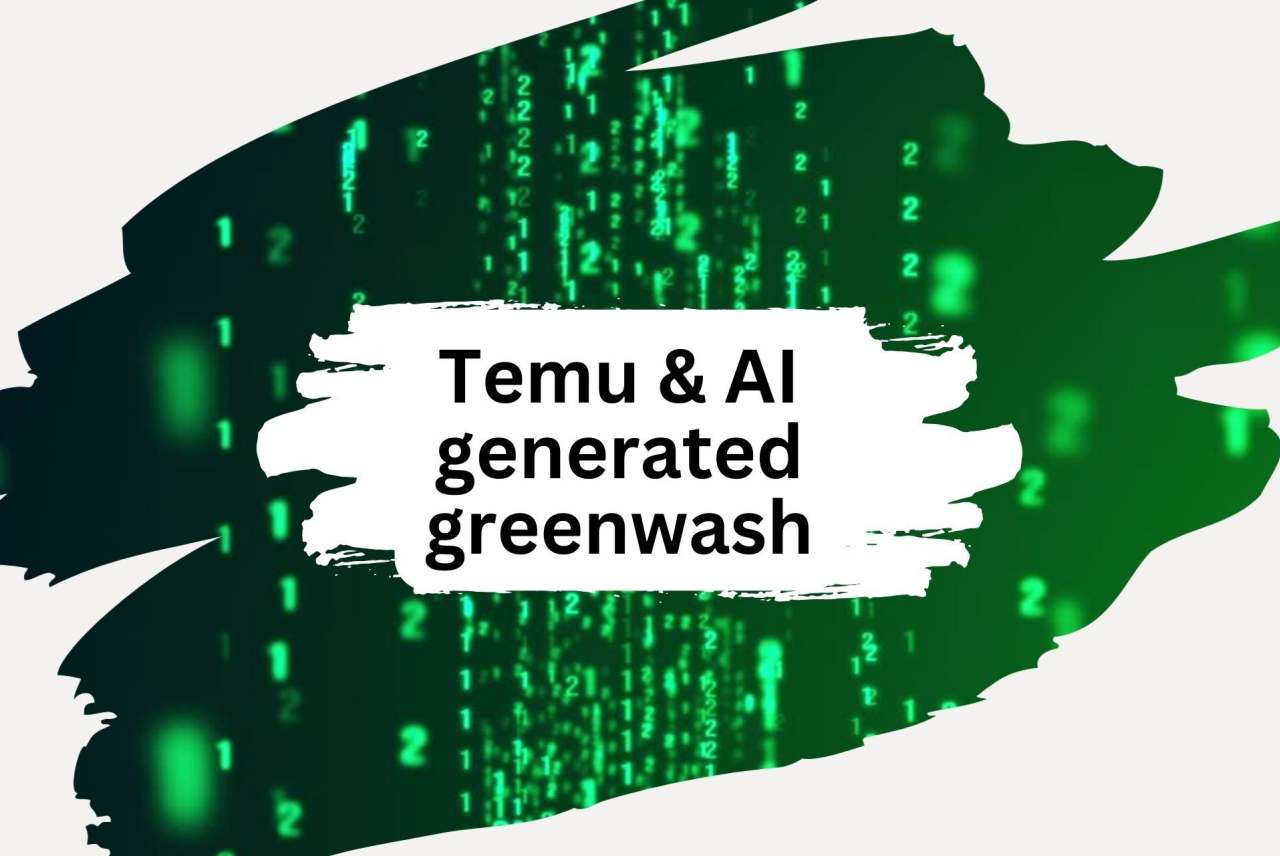How ethical is Temu?
Temu is by all standards a large company – its holding company registered £15.7bn worth of sales last year. Most companies of this size release 50+ pages of sugar-coated sustainability reporting annually, in a ritual that largely serves to appease investors and wrong-foot Ethical Consumer researchers when investigating brands in our ethical shopping guides, such as the high street fashion guide. Such reports generally favour style over substance, yet they also disclose important information, like emissions reporting or sourcing policies, which forms the basis of much of our research.
Temu, however, provided next to nothing. Its annual reports and public filings disclosed only the bare minimum financial reporting required for it to trade legally, and all mentions of ethics were relegated to a two page ‘Third Party Code of Conduct’. The code was itself unremarkable, aside from the fact that it was more or less the company’s only public policy.
More remarkable however, was the deluge of third party ‘articles’ that filled my Google search results in lieu of reporting by Temu itself. Multiple ‘journalists’ had apparently written suspiciously similar articles, applauding Temu on its ethical credentials, across a range of authoritatively named websites like ‘Retail Insider’, ‘Charlotte Observer’, ‘Econotimes’ and ‘Business in the News’.
Each article made broadly similar claims about Temu. Retail Insider asked “Is Temu A Good And Ethical Company?”, before concluding that it is “a good company to support due to its innovative business model, ethical and sustainable practices, and positive reputation”. Charlotte Observer was similarly ponderous: “Is Temu Fast Fashion? It’s the exact opposite! By prioritising ethical and sustainable practices, the company is paving the way for a more equitable and sustainable future”. Business in the News however wasted no time pondering, asserting that “Temu is a good company with strong ethics and values […] Temu the company is legit, ethical, and worth every dollar.”
Intriguingly, the closest these articles got to evidencing their claims was via rephrased or simply lifted text from Temu’s Code of Conduct. Who’d have thought that this company’s run of the mill, boilerplate code of conduct was so newsworthy?
Is content about brands being written by AI?
My instant reaction to these identikit articles – beyond that they were talking complete garbage (Temu scored 0/100 in our latest research round) – was that they felt AI generated. This is difficult to prove, but the language used and GCSE-essay style structuring was eerily ‘Chat GPT-esque’.
We ran a few of these articles through zerogpt.com, which is a tool designed to pick up AI-style writing. The tool can easily be fooled by more detailed prompting or minor human edits, but it deemed that the Retail Insider and Charlotte Observer articles were likely be written by either a GPT, Bard or LLaMa text model. Large chunks of other articles were also picked up by the detector.
I also fed Temu’s Code of Conduct into Chat GPT and asked the program to assess the company’s sustainability credentials. The resultant article was predictably similar to those I had just viewed. Chat GPT concluded that “Temu appears to be committed to ethical and sustainable business practices. By addressing a wide range of issues, including bribery, discrimination, environmental protection, and labour practices, the company demonstrates a holistic approach to corporate responsibility.”
My Chat GPT attempt did a good job of praising and rehashing Temu’s own words, and it did not appear to include any outright falsehoods. The same can’t be said for Retail Insider, which made the erroneous claim that Temu had “received an A-rating from the Better Business Bureau”, despite Better Business Bureau having never accredited the company. Chat GPT does after all have a reputation for occasionally ‘hallucinating’ details i.e. making stuff up.
So, who is behind this? Is Temu churning out masses of AI-generated content in order to fool consumers into believing that it is ethical? Some of the articles framed Temu as the ethical alternative to Shein, its main rival in the ultra-fast fashion space. Shein has previously sued Temu for allegedly hiring online influencers "to make false and deceptive statements" about it, so perhaps Temu has turned to Chat GPT instead? Or are content ‘news’ sites, ever-thirsty for clicks and ad revenue, churning out AI-generated content based purely on the popularity of Google search terms? I emailed each of the above websites to enquire about how they evidenced their claims, hoping to prise out some juicier information, but received no response.
Digging further, I came across AIcontentfy.com, an aptly named website which apparently focuses on flooding the web with AI generated content. It contained an article titled ‘ChatGPT and the potential for AI-generated content for corporate social responsibility’, and whilst I couldn’t determine whether or not this piece was itself AI generated, I had my suspicions. If so, I can only assume that its algorithm was trained entirely on PR jargon, with no exposure to less ‘contentify-able’ concepts like, say, the ethical responsibilities of corporations.
The article makes a number of dystopic claims, such as: “a company might want to target its CSR campaign towards millennials, who are more likely to be concerned about environmental issues. By training ChatGPT on data related to this demographic, the model can generate text that is tailored to this group and is more likely to resonate with them.” No mention is made of trivial issues, such as whether or not the generated text is accurate.
Look for sources you trust
Whilst the intentions remain murky, the repercussions of this form of ‘content’ are certainly concerning. The world of corporate social responsibility has long walked a fine line with the truth, and in the UK, we often rely on the Advertising Standards Regulator to step in when companies stray into outright misrepresentation. It cannot however, regulate misleading articles that have no direct link to a particular company.
We have come across plentiful third-party greenwash disguised as ‘news’ before, but AI has the capacity to flood the internet with such content at unprecedented speeds. It took me 15 seconds to prompt Chat GPT to write that article, and another 5 seconds to ask it to “write another 20 similar articles based on the same source information”.
Whether it’s at the behest of unethical companies or simply in pursuit of clicks, the fact that authoritative sounding titles are willing to publish misleading information is deeply worrying, and only reinforces the need for greater evidence-based accountability in the corporate sector.







